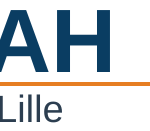Educational research into digital technology is often criticized for its lack of scientific
accuracy and voices raised to emphasize the superiority of experimental methods for
tackling this issue. Experimental treatment is therefore considered as a necessary
“standard of practice” for “evidence-based reform in education” (Slavin, 2013). The
same voices even deny any value to methodological paradigms that, in order to evaluate
the effects of an educational technology, would not proceed by comparing an
experimental group (the one that uses the technology in question) with the control group
(the one that does not use it) (see for example Dehaene, 2011). Within this context, it is
important to recall some important results produced by epistemologists, sociologists and
educational researchers.
[…]
Read the full text in the International Journal of Instruction website (pdf)
Sanchez, E. (2020). Research into Technology Enhanced Learning: Do we Really Need a Control Group? International Journal of Instruction, 13(3).



